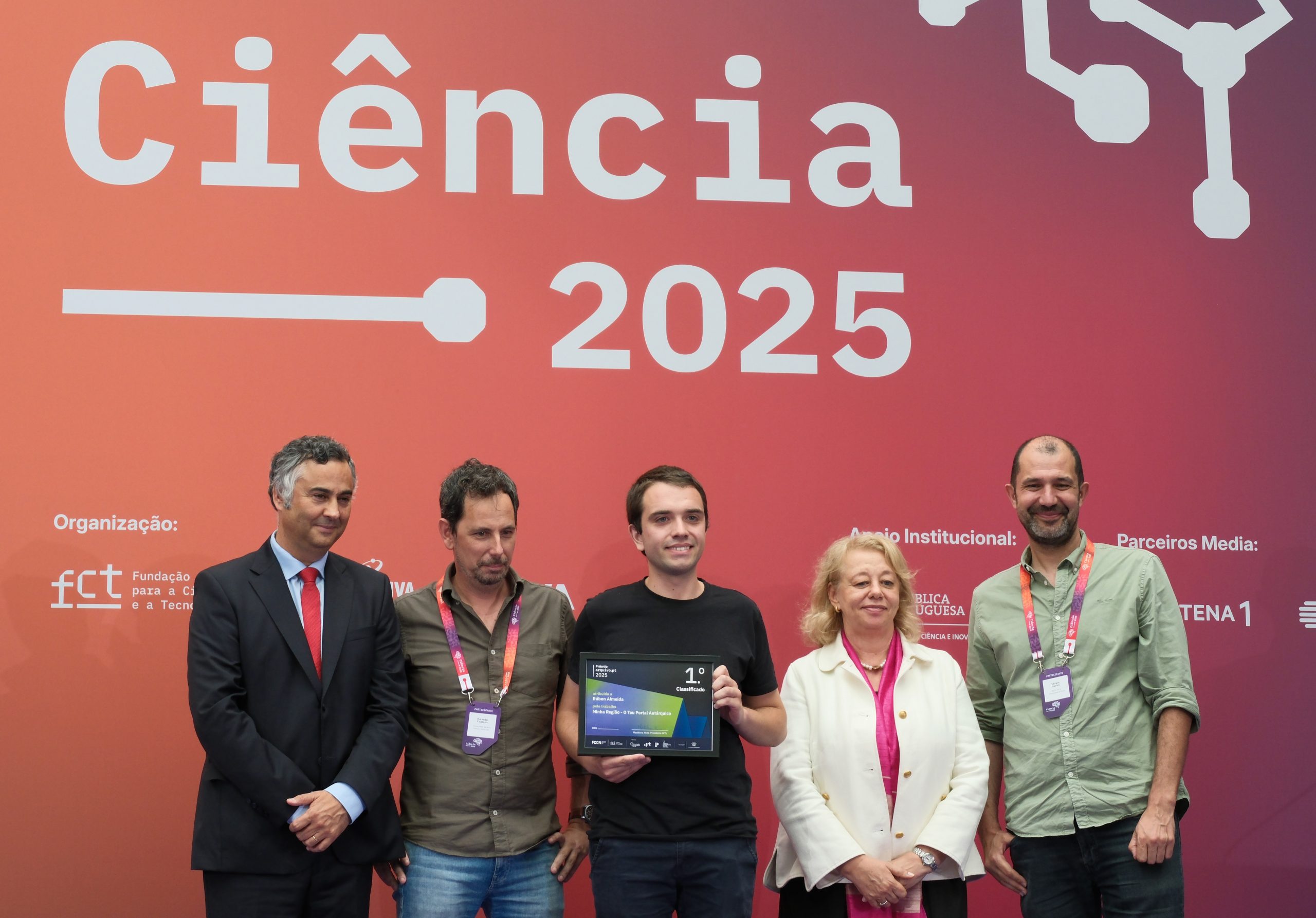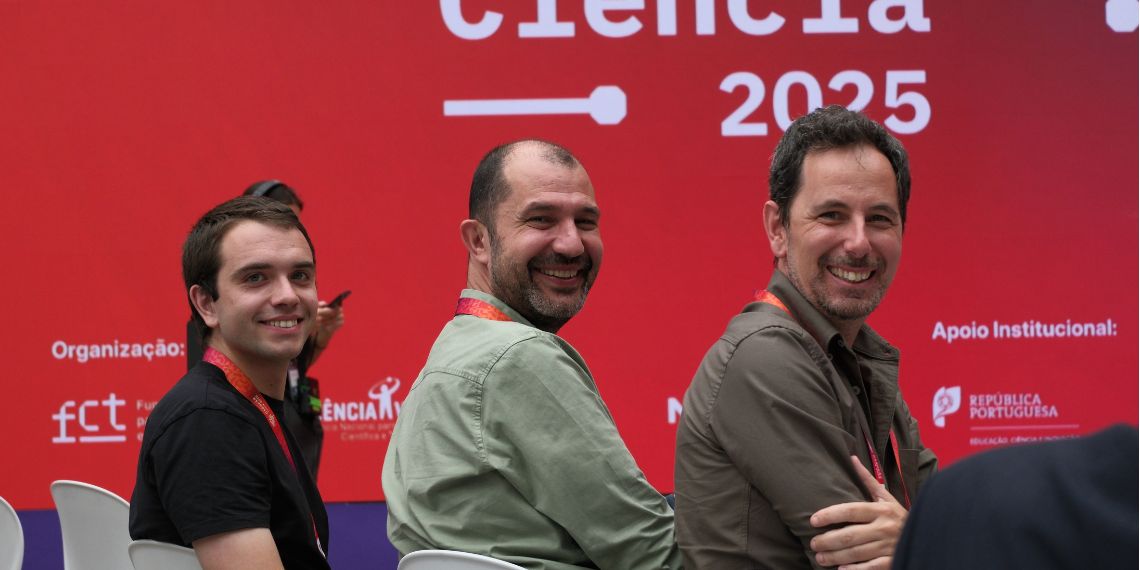Imagine being able to access Portuguese local election data in a structured and intuitive way, from 1976 to the present. This was the idea behind the platform A Minha Região – O teu portal autárquico, developed by INESC TEC researchers Rúben Almeida, Sérgio Nunes and Ricardo Campos, which won first place in the 2025 Arquivo.pt awards.
Each year, this initiative awards projects that add value to and reuse web heritage preserved in Portugal. More than just a consultation portal, A Minha Região is a tool for digital citizenship. It covers all 2,882 parishes, 278 municipalities, and 18 districts of mainland Portugal, providing data like vote percentages for each party, voter turnout, information on elected parishes and municipal councils presidents, and local news related to the local election processes (from candidate profiles to campaign promises).
“This project has a deep civic sense and stems from the belief that regionalisation can drive the country’s development and help address Portugal’s inequalities. Local elections (and local governments) are, digitally speaking, often disregarded in terms of the Portuguese electoral process. We’ve witnessed various efforts to promote citizen participation in elections, but these tend to focus on legislative or European elections, where defined manifestos exist,” said Rúben Almeida.
Recovering and structuring information from Arquivo.pt presented a significant technical challenge. Much of the local electoral data was scattered across the website of the National Election Commission (which does not provide an API), the legislative election portal (eleicoes.mai.gov.pt), various municipal websites, and the portal freguesias.pt. The data was disorganised, in varied formats, and difficult to access – particularly for years prior to 2001. “Archived web content is, by nature, unstructured. From 1976 to 2001, there were seven election cycles where data was simply inaccessible, and only through the indexing work of Arquivo.pt were we able to recover it. We had to apply natural language processing techniques to make sense of the chaos – to analyse the data, understand what was relevant on each page, and create a usable, credible database,” explained Rúben Almeida.

Open science with social impact
The platform also provides a public API (Application Programming Interface), allowing any researcher to access the collected data for free. The team hopes this commitment to open science will inspire new projects in fields like political science, journalism, and citizens’ engagement.
Although now working in industry, Rúben Almeida emphasises that the project was only possible thanks to his AI research at INESC TEC. The money from the award will be reinvested in further development of the platform. Plans are already underway to include data from legislative, European, and presidential elections, to develop a chatbot-based interface, and to expand the curation of local news content. “A Minha Região is far from finished; it’s a living project that we seek to advance with input from the community. The code will be open-source, and I hope more people who care about local issues and democratic participation will join the effort,” the researcher concluded.
A Minha Região is part of a research domain aimed at improving citizen access to public-interest data, with the goal of strengthening literacy and democratic engagement. “This line of work has been deepened through the CitiLink project, which uses AI algorithms and natural language processing (NLP) techniques to interpret and summarise municipal meeting minutes,” explained Ricardo Campos.
This is not the first time INESC TEC has won this award: the projects Conta-me histórias and meuparlamento.pt received this acknowledgement in 2018 and 2019, respectively. In 2022, the Institute placed third and received an honourable mention from the newspaper Público, and in 2024, the DNS.PT granted INESC TEC yet another honourable mention.
The award – under the High Patronage of the President of the Republic – was presented during the closing ceremony of the Ciência 2025 event, held between July 9 and 11 at Nova SBE (Lisbon). The researchers received the award from the Minister of Education, Science and Innovation, Fernando Alexandre, and the Chair of the Board of the Foundation for Science and Technology (FCT), Madalena Alves.
The researchers mentioned in this news piece are associated with UBI and UP-FEUP.


 News, current topics, curiosities and so much more about INESC TEC and its community!
News, current topics, curiosities and so much more about INESC TEC and its community!